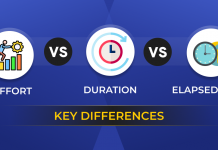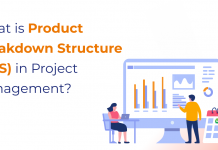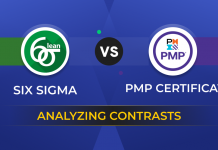
In today’s project-based environment, project management has somewhat revolutionized how enterprises are undertaking projects globally and successfully delivering them. With a robust structure, it is easier to track project resource allocations, costs, timelines, and ensure deliverables are of high quality. There is a widespread adoption of project management software in enterprises across the globe.
According to PwC’s “Insights and Trends: Current Programme and Project Management Practices” findings, it is said that 77% of organizations use project management software, and 87% of high performing organizations use project management software. But finding the right project management software that fits your criteria is not easy as finding some of the standard hosted systems out there. There are certain things that you need to keep in mind while looking for a project management software.
-
Map your Business System Requirements:
Today, cloud-based systems have enabled agility among the employees more than ever before. There are some cloud-based project management software who offer less than their fully hosted equivalents. To understand what you need in your project management software, you need to first map out your business system requirements. This will give you an idea of knowing whether all of your critical tasks can be accommodated in the cloud-based version which will help in streamlining processes to ensure successful project delivery. Hence, the match between your business critical requirements and the offerings of a project management software is key towards evaluating
-
Type of Project Management Software your Business needs:
One of the most difficult task while evaluating a project management software is to understand the various types of software that are in the market. Different vendors have different approaches to a project management software. For instance, a software for EVM is made up of scheduling, cost, and reporting engine. Hence, you can look for a vendor who provides all these attributes or you can select best in class functionalities from different vendors where you can mix and match the services that you require from these cloud-based project management software.
-
Organizational Infrastructure and Integration:
One of the key reasons to achieve a consistent adoption of project management best practices in an enterprise is that the project management software needs to be integrated properly with business systems. So, capturing requirements of your business systems along with the software is one that needs to fit with your IT strategy. One of the main objective to integrate project management software is to eliminate duplication in data and have single source of information. Hence, the integration of cloud-based project management software needs to integrate seamlessly, if not, it can be wrongly considered as an additional workload for project managers than simplifying it.
-
Security takes Precedence:
When it comes to choosing a project management solution based on security, there is an argument that on premise project management solutions are more secure than cloud-based solutions. But, the only difference is that you physically control your servers. Rest it is the same, your server is the same as their server, but at a remote location. It is just the feeling of control that is driving the argument towards on premise project management software solutions which is within your own firewalls.
Let us be clear on the part that cloud-based software can be as secure as on premise systems. So, if you can find a SaaS vendor who could provide robust security features, have their own independent security certification which is more rigid than your IT policies, then a cloud-based software can offer a far greater advantage. With increasing remote and mobile access of project critical information from employees, it is mandatory to ensure there is high level of security measures towards project management systems, so perform your due diligence by vetting out your vendors to check whether their policies and services are compliant with your organizational standards. -
Check for Customization Levels:
There is a valid argument making rounds that cloud-based applications are less customizable than on premise solutions, but many providers are addressing the issue. While choosing a cloud-based applications for your enterprise, ensure they offer the required configurations that you have asked for and allow any modifications in reports and field settings. There are some solutions who even offer you to write the code on your own as per your requirement. Make sure you check their implemented software examples elsewhere.
-
Check for Device Compatibility:
You have to make sure that the cloud-based software works with various platforms such as PC, mobile phone, Unix, tabs and other hand held devices. The software should be compatible with range of mobile devices and their OS, as you and your team might be comfortable with different platforms. Also when many people swap devices, brands, and service providers on a regular basis. Hence choosing a cloud-based software that offers high compatibility is key with regards to evaluating your project management system.
-
Understand their Technical and Customer Support:
One of the key factors while considering any software purchase is to understand their technical and customer support available. Do they have a multi-channel support system in place which offers phone support, email, ticketing, and live chat? Do they provide 24/7 support? Is customer support included along with the services that they are offering? Can one call with a concern or will it be filtered through a point of contact? An ideal solution here is that they offer their services including customer support while purchasing, and offer support during your time zone. Make sure you contact some of their clients go get a fair idea on their customer support instances and see whether they meet your enterprise business requirements.
Cloud-based project management software can have immense benefits if you do it properly. It provides far better mobility, cost advantage, and increased productivity on the go. But evaluating them by asking the right questions is what differentiates from a bad to a good relationship with your SaaS provider. Do let us know in the comments section if there are other ways to evaluate a cloud-based project management software.














